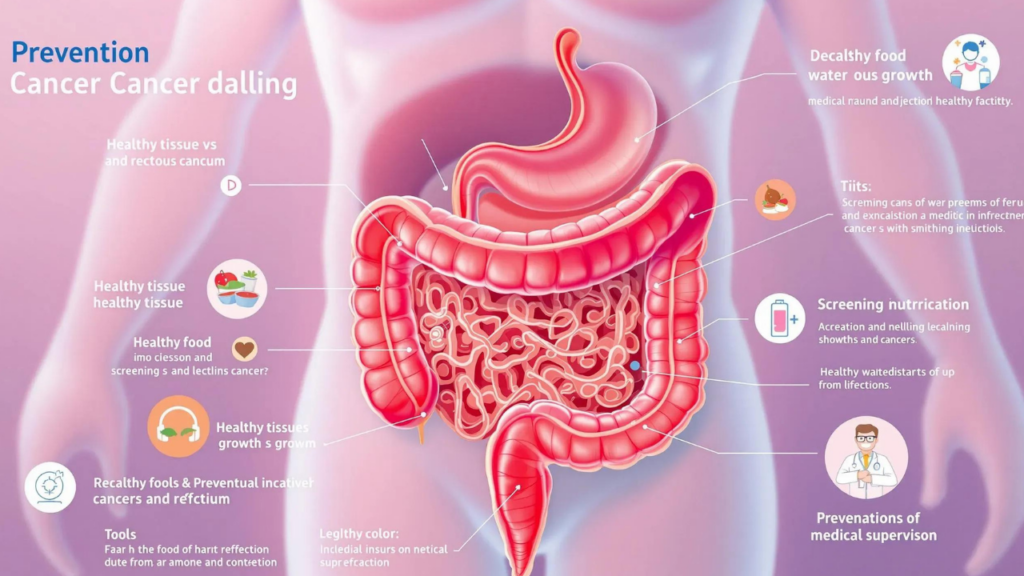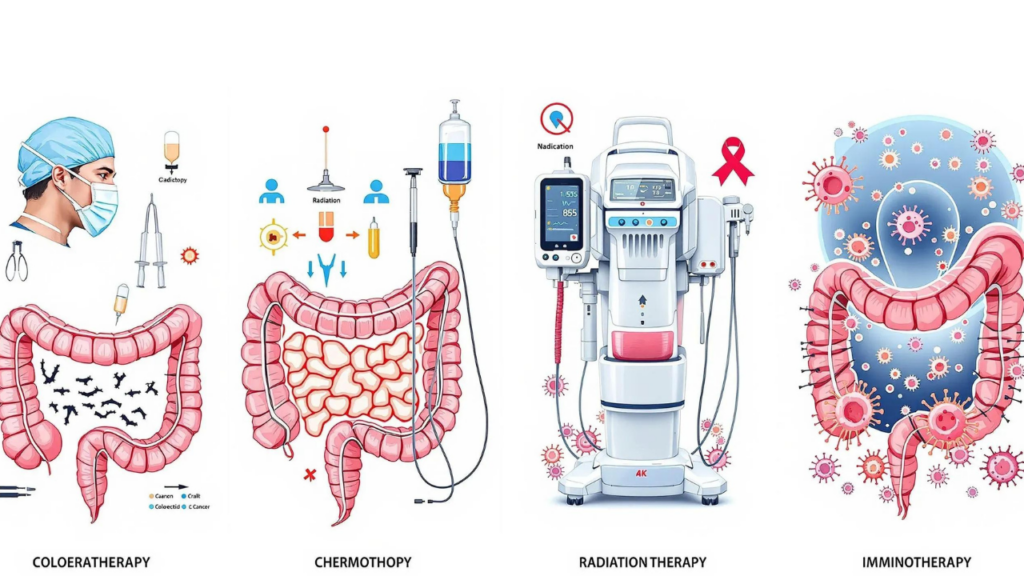Colorectal cancer is a devastating illness, affecting millions worldwide every year. It is the third most common cancer and one of the leading causes of cancer-related deaths in the United States. However, early detection, lifestyle changes, and treatment options can significantly impact outcomes. This article explores everything you need to know about colorectal cancer, from how it develops to how you can prevent it.

What is Colorectal Cancer and How Does it Develop?
Colorectal cancer begins in the colon or rectum, parts of the large intestine responsible for absorbing water and nutrients. The disease typically starts as small, benign growths called polyps that gradually develop into cancer. These growths may go unnoticed for years, but over time, they can become malignant. If left untreated, cancer cells can spread to nearby lymph nodes and organs, worsening the prognosis.
Understanding how colorectal cancer develops is key to recognizing the importance of early detection and treatment. Regular screenings can help identify polyps before they turn cancerous, significantly improving survival rates.
Risk Factors for Colon Cancer: Prevention is Possible!
While some factors for colorectal cancer are beyond your control, such as genetics and age, several modifiable risk factors can influence the likelihood of developing the disease. These include:
- Age: Colorectal cancer is more common in people over the age of 50.
- Family History: A family history of colon cancer or polyps increases the risk.
- Diet: Diets high in red or processed meats and low in fiber may increase risk.
- Sedentary Lifestyle: Lack of physical activity is linked to a higher chance of developing the disease.
- Obesity: Being overweight or obese raises the likelihood of colorectal cancer.
- Smoking and Alcohol: Both smoking and excessive alcohol consumption contribute to the risk.
While these factors don’t guarantee cancer development, they do indicate a higher likelihood, making lifestyle changes crucial. Regular physical activity, a healthy diet, and quitting smoking can help lower the risk.
Symptoms: How to Identify Early Signs
Colorectal cancer often doesn’t show obvious symptoms in its early stages, which is why screenings are so important. However, as the disease progresses, some common signs may appear, including:
- Persistent abdominal pain or discomfort
- Changes in bowel habits, such as diarrhea or constipation
- Blood in the stool or black, tarry stools
- Unexplained weight loss
- Fatigue or weakness
- Feeling like your bowel doesn’t empty completely
If you experience any of these symptoms, it’s essential to consult a doctor for a thorough evaluation. Early detection plays a pivotal role in successful treatment.
Diagnosis: Most Effective Tests and Methods
When it comes to diagnosing colorectal cancer, several screening tests are available, each with its advantages:
- Colonoscopy: This is the most effective screening method for detecting colorectal cancer. During this procedure, a doctor uses a long, flexible tube with a camera to examine the entire colon for polyps or cancerous growths.
- Stool Tests: These tests detect hidden blood in the stool, which may indicate the presence of cancer or polyps.
- CT Colonography (Virtual Colonoscopy): A non-invasive imaging test that creates detailed pictures of the colon.
- Biopsy: If a suspicious polyp or tumor is found, a biopsy may be performed to determine whether it is cancerous.
Screening is recommended starting at age 50, or earlier for those with a family history or other risk factors. Regular screening can lead to the detection of polyps before they become cancerous, improving survival rates significantly.
Treatments: Options and Medical Advances
The treatment for colorectal cancer depends on the stage and location of the disease, as well as the patient’s overall health. The main treatment options include:
- Surgery: Removing the tumor or affected portion of the colon is often the first step in treating colorectal cancer. In early stages, surgery may be all that is needed.
- Chemotherapy: This treatment uses drugs to destroy cancer cells or shrink tumors. Chemotherapy may be used after surgery to eliminate any remaining cancer cells or in combination with other treatments.
- Radiation Therapy: High-energy rays are used to target and kill cancer cells, often in conjunction with chemotherapy.
- Targeted Therapy and Immunotherapy: These newer treatments focus on specific molecules involved in cancer growth. Targeted therapies aim to block cancer cell growth, while immunotherapy boosts the body’s immune system to fight cancer.
Medical advancements continue to improve treatment outcomes, providing hope for those affected by colorectal cancer.
How Diet and Lifestyle Impact Colorectal Cancer
What we eat and how we live plays a significant role in preventing or managing colorectal cancer. A diet rich in fruits, vegetables, whole grains, and lean proteins can help reduce the risk. These foods contain essential nutrients and antioxidants that support a healthy immune system and help protect against cell damage.
Additionally, a healthy lifestyle that includes regular physical activity, maintaining a healthy weight, and avoiding smoking and excessive alcohol consumption can also lower the risk of developing colorectal cancer.

Conclusion: Awareness and Action Are Key
Colorectal cancer is a serious disease, but with early detection, treatment, and lifestyle changes, survival rates have significantly improved. By understanding the risk factors, symptoms, and available treatment options, we can take proactive steps toward prevention.
Stay informed, encourage regular screenings, and adopt a healthier lifestyle to reduce the risk of colorectal cancer. Your actions today can make a world of difference in the fight against this disease.
Take action now to safeguard your health—start by scheduling a screening and adopting a healthier diet and lifestyle. Your future self will thank you.
Learn more about Nagano Tonic and its benefits here.
Prostate Cancer after 50: prevention of prostate cancer


Pingback: Oral Cancer: Key Factors That Increase Your Risk - stay healthy today
Pingback: Mental Health: Unveiling Anxiety and Depression's Depths - stay healthy today